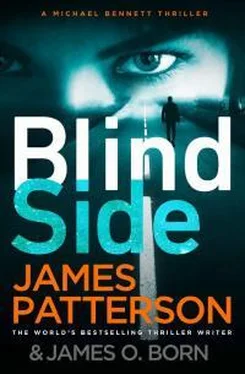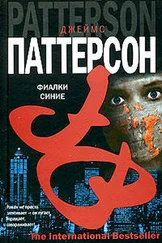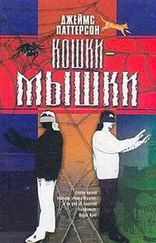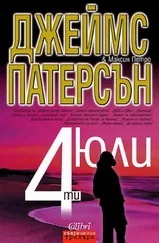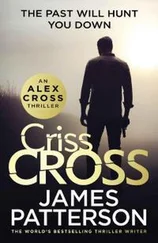Over the years, I’d explored the idea of applying to the FBI or pursuing promotions within the NYPD. But days like this always convinced me that being a detective was the best possible position. Not just any kind of detective, but an NYPD detective. To roam over this great city and meet interesting people made me excited to start work almost every day.
I had a list of names the mayor had given me. They were acquaintances or friends of Natalie’s. I had spoken to the mayor’s ex-wife, who now lived north of Albany. She knew more about her daughter’s day-to-day life and friends but offered nothing of great importance. At least nothing that looked important at the moment. I’d seen divorce ruin families. I got the idea that the divorce was only part of this dynamic, though the mayor himself had taken the blame.
The mayor’s ex-wife had started to worry about her daughter a while ago. She felt the rising fear of a parent. She didn’t care what I did or who I was as long as I found her daughter.
I spoke to a bright young woman named Allie Andrus, who was a senior at NYU. She had been friends with Natalie since middle school. I thought I’d get some real insights, but all she said was that they had drifted apart. Now Natalie hung out with a group of computer hackers. Allie used the phrase “cyberpunks.” That sounded a little dismissive to me.
I spoke to two other friends on the phone and then landed on the name Thomas Payne.
When I ran the name through NYPD computer indexes, I was shocked to learn he was the victim of a homicide. His body had been found a few blocks from Penn Station.
That changed everything. It could be a coincidence. But if you believe in coincidence, you probably shouldn’t be a cop.
I immediately got on the horn and reached Detective Ed Arris. He gave me directions to Payne’s apartment and said he’d meet me in a few minutes.
Ed and I went back a few years. He was six foot four but had more bulk than me. Some of it had to do with his football career. He’d played at Hofstra about the same time as their best-known NFL player, Wayne Chrebet.
He shook my hand, then enveloped me in a bear hug. “Good to see you, Mike. We’ve all been worried about you.”
I waved off the sentiment, but it touched me. I had to change the subject, quick.
I said, “How do you like Manhattan South?”
“You know how it is. I’d been up in the Bronx a while. NYPD likes to spread out their black detectives. This is a pretty easy gig compared to the Bronx. I figure I’ll pull the plug in the next ten years anyway.”
I noticed how well kept the building was as we walked to the front door of the apartment. There was no doorman, but the electronic security was outstanding. Four different cameras caught the front of the building. An expensive awning covered the sidewalk leading to the entrance.
Ed said they had no leads. Just a body that had been strangled with a ligature. In this case, he thought it was some kind of wire.
Ed said, “Screwed up the victim’s neck pretty bad. Deep laceration, but it didn’t sever any arteries. The poor kid choked to death. He was dead at least twelve hours before someone from a restaurant next door noticed the body jammed up against a wall behind a row of parked cars. The kid’s family is devastated.”
Every homicide detective knew the feeling, talking to a family who had just lost someone. Death notifications were one of the worst parts of the job.
Ed fumbled with the keys, then we ducked under some yellow crime-scene tape across the doorway.
As soon as we stepped into the apartment and I saw the two TVs and all of the computer equipment, I knew this was related to the missing Natalie Lunden.
CHAPTER 27
IT’S ALWAYS Asurreal experience to be in the apartment of a dead person. Their life is told in the belongings they left behind. Secrets are held in correspondence and emails. Even their TV viewing habits might be looked at. Anything that could give a detective a hint of what led to the homicide.
Cops like to say a good homicide detective is born, not made. The gift has more to do with the determination to keep looking at things until they make sense. With all the new forms of communication, from instant messaging to email, investigations have changed dramatically. More opportunities to catch a killer also means much more information to pore over. Cases, at least more complicated cases, take longer.
I believe experience is what makes a good detective. Varied experience, not the same one over and over. Experience is a tricky thing. You never realize how important it is until you gain it. The ultimate catch-22.
This was a very nice two-bedroom apartment most professionals would kill to live in. Somehow a twenty-four-year-old computer whiz had found a way to pay for it.
Ed proceeded to brief me as we walked through the apartment. He said, “We found an airline ticket to Estonia.”
Immediately I thought about the wire from Danske Bank in Estonia that paid for Natalie Lunden’s apartment. Things were starting to pop.
Ed continued, “The victim had a Long Island Rail ticket to Hempstead in his pocket.”
“A fairly big town. I think it’s the biggest in Nassau County. He have relatives there?”
Ed said, “I spoke to his parents, who live in Hicksville. They weren’t expecting him. Of course, they’re in shock. The only thing they could think of was that his grandmother has a house in Hempstead she lets him use. I looked up the address. Good place to lie low. It would be hard to connect it to him.”
I said, “You think he had a change of heart about the trip to Estonia. Maybe he was running.”
Ed finished my thought. “And whoever he was running from caught him. It’s possible. We have some grainy surveillance photographs that show him leaving Penn Station with a couple. A well-dressed white woman and man in their thirties. Not enough to make an exact ID. But the surveillance cameras downstairs show what may be the same couple visiting the building earlier that evening. Excellent images, but not a single match in our system, and they may have been visiting someone other than Payne. This one really has us stumped.”
“No drug connections?” That was usually the first and most likely reason for a homicide in New York.
“No, nothing. He’d been in school until eighteen months ago.”
“His parents pay for this apartment?”
“Nope.”
“Interesting.”
“And confusing. I can’t find what the kid did for money, but he was doing okay.”
“I’d say so.”
I had told him I was looking for a witness. Technically, it was true. I had been waiting for the next question.
Ed said, “What’s the connection between the witness you’re looking for and Payne? Can the witness help me on this homicide?”
“Truthfully, I don’t know. But if I ever find her, it will be one of my first questions.”
“What kind of case is she a witness to?”
“Ed, this is gonna sound weird coming from me, but I can’t talk about it.” It was embarrassing to tell one of my brother cops something like that. The FBI did that kind of shit all the time. That’s why none of the local cops worked with them much. I didn’t like saying it to a fellow detective.
But he took it in stride and we continued exchanging a little information and looking through the apartment again.
Finally I said, “Okay, Ed, I’ve seen enough. Will you keep me in the loop?”
“Sure, no problem. Will you do the same?”
“As soon as I’m authorized, you’ll hear the whole story. For now, I have to shift my focus to another witness.”
“Down here in Manhattan South? I have a lot of contacts.”
“I think I need to go to Columbia first. Last I heard she was registered there.”
Читать дальше
